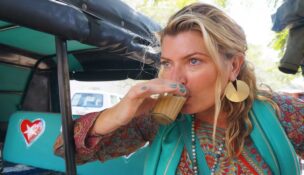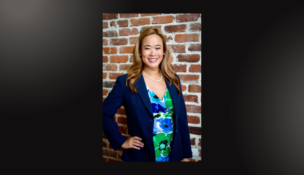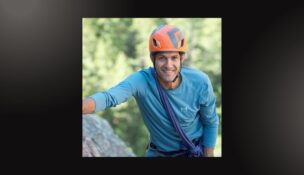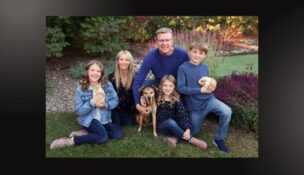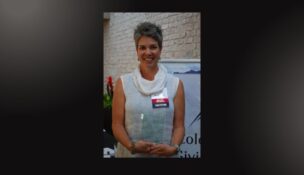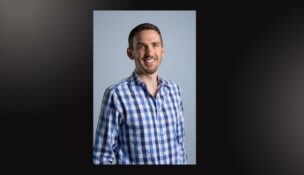How Peter Burns helps promising food companies flourish
Good Company: In September, Burns directed the sale of ONE Brands to The Hershey Co. for $397 million
Mike Taylor //January 28, 2020//
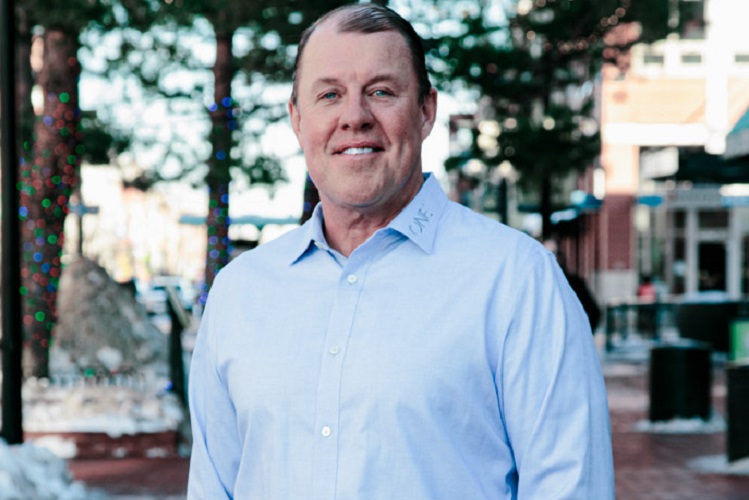

How Peter Burns helps promising food companies flourish
Good Company: In September, Burns directed the sale of ONE Brands to The Hershey Co. for $397 million
Mike Taylor //January 28, 2020//
Photo by Scott Colby
Peter Burns | CEO, ONE Brands
Hometown: Boston
Age: 58
What he’s reading: “Shoe Dog,” a memoir by Nike co-founder Phil Knight
Book he recommends: “The Power of Now: A Guide to Spiritual Enlightement,” by Eckhart Tolle
During his 23 years in Boulder, Peter Burns has established himself as an expert in the food and beverage space, especially when it comes to preparing promising companies for acquisition by multinational giants. In September, he directed the sale of ONE Brands, a Boulder-based protein-bar line, to The Hershey Co. for $397 million. Before joining ONE Brands in 2017, he served as CEO and president of Justin’s nut butters, working with founder Justin Gold to execute a two-year plan culminating in a $286 million acquisition by Hormel.
Previously, Burns was president of Celestial Seasonings for Hain Celestial Group, for which he developed and managed Celestial Seasonings’ worldwide business.
ColoradoBiz: Now that ONE Brands has been acquired, will you remain CEO? And will ONE Brands remain in Boulder?
Peter Burns: (Laughs) Until they kick me out, that’s the plan. We actually have two offices – an office in Boulder that houses most of my executive team and pretty much all of marketing, and we have an office in Charlotte (North Carolina), where the founder, Ron McAfee, is.
CB: In 2017, CAVU Venture Partners announced it was backing Oh Yeah! Nutrition (as ONE Brands was known then) and had recruited you as CEO. What was your first order of business with ONE Brands?
PB: The brand had started out in sports nutrition but really hadn’t forged into food/drug/mass business. In order to do that, we had to recruit the team. We took the sales team, built the marketing team, and today we’re 55-people strong. We doubled the size of the company, put the right people in the right boxes. The second thing was around the packaging. We really felt the bar itself was an incredible product: taste, texture, flavor profile. We had that piece nailed, but the packaging didn’t work. So the other big order of business was to do a “pack” change and take our time and get that done right. Then we just set out to go see customers and build a business and do what we do: people first, then the packaging and product stood for itself.
CB: What specifically was your goal with the new packaging?
PB: The new packaging appeals more to folks who are into active lifestyle as opposed to going to the gym for three and four hours a day. We purposely designed the package to represent a more active lifestyle brand, and I think the packaging with the matte finish and the high-gloss food photography was really killer for us. That was by design – to be more of a mainstream brand and business as opposed to just a fitness brand.
CB: What brought you to Boulder initially?
PB: We moved out from Boston in 1997, my wife and three young daughters – ages 4, 19 months and a newborn. I was back on the East Coast with Celestial already but got promoted and came out here.
CB: How advantageous is it in your industry to work in Boulder, where natural-products visionaries like Mark Retzloff, Steve Demos, Mo Siegel and so many others laid the groundwork for future entrepreneurs?
PB: Boulder is the center for natural and organic food and beverage. Period. There’s an unbelievable amount of talent in the first-generation folks you mention. Think about it – Celestial Seasonings is 50 years old. That company really started the whole (natural products) thing. And then I think the lifestyle — the weather, and the community within Boulder, is different. There’s Austin and there’s Portland and a variety of places that have natural-food presences and companies. But Boulder’s a little different in that everybody wants to help everybody, and everybody will meet for a cup of coffee and exchange ideas and connect people. And it’s just an unbelievable place to be and live.
CB: What have been the biggest changes in the natural products or packaged food industry in Boulder since you’ve been here?
PB: It’s just entrepreneur heaven. For the companies that you know of in Boulder, I bet there are 20 that you don’t know of. So I think it’s much more of an entrepreneurial environment in Boulder than before, and I think the rest of the world is catching up. I mean, Justin (Gold) was working at a restaurant in Boulder and made nut butter in a salsa factory for 12 years before things came along. So there’s no shortage of great ideas coming out of Boulder, and I think it will continue to be that way.
CB: How did you become involved with Justin’s nut butters and its acquisition by Hormel?
PB: Justin had a great product, a great package and really needed a team of folks to come in and partner with him and run the business and take it to the masses. It’s a natural growth stage. Justin was great because he grew the business to where he said, “Look, I don’t know how to do the next thing.” Justin and I had been friends for 10 years, probably. We would meet for coffee and he’d bounce ideas off me, and I’d give him some advice. I sat on his board for a period of time. Then he just called me out of the blue one day and said, ‘let’s have a conversation; I think you can come and run this.’ I’ve been incredibly fortunate with the brands I’ve been associated with. We just come in and provide the focus and discipline of how to grow a business with great people, and the rest is kind of history. But you’ve got to have a brand.
CB: How specifically have you helped these promising companies realize their potential?
PB: We build a solid foundation, and we grow the brand up the right way. Because when things go too fast, then things break. When things go too slow, you miss opportunities. The stories of brands that go from zero to 100 and then crash are numerous. I think when you have a brand, you need to grow it up the right way and give it what it needs at the right time. So that’s what we provide.
CB: What do you see for the future of Boulder and its natural-products ecosystem?
PB: I think it’s going to continue to grow. The science around food has been woefully behind, and now things like plant-based foods … there’s just going to continue to be more innovation, more evolution, more science, more knowledge, and that’s just going to feed into the Boulder system and attract the best and the brightest, I think.
CB: You’ve been involved with the CU Leeds School of Business in various capacities. What advice would you give a business student looking to become the next Peter Burns?
PB: (Laughs) I wish I could tell you I had a plan, but I didn’t. I think the advice I would give would be to sacrifice a little bit of financial gain at the beginning for a company that will educate and train and develop your foundation. Everybody wants to go to a startup — and startups are great. Some of them may have a training program and a development program, and some may not. My advice would be to get with a company that’sgoing to invest in you and your future and your knowledge base. For me, that was Big CPG (Consumer Packaged Goods). I started with a big company; I got trained and I got developed and they invested in me. It allowed me to really grow and develop that foundation.
CB: Earlier you cited “The Power of Now” as one of your favorite books. Why?
I carry it with me everywhere I go and have given it to several people. I’ve read it cover-to-cover a bunch of times. I use that to try to keep myself balanced and make sure I’m focusing on the now and not letting the past or the future get in the way.







